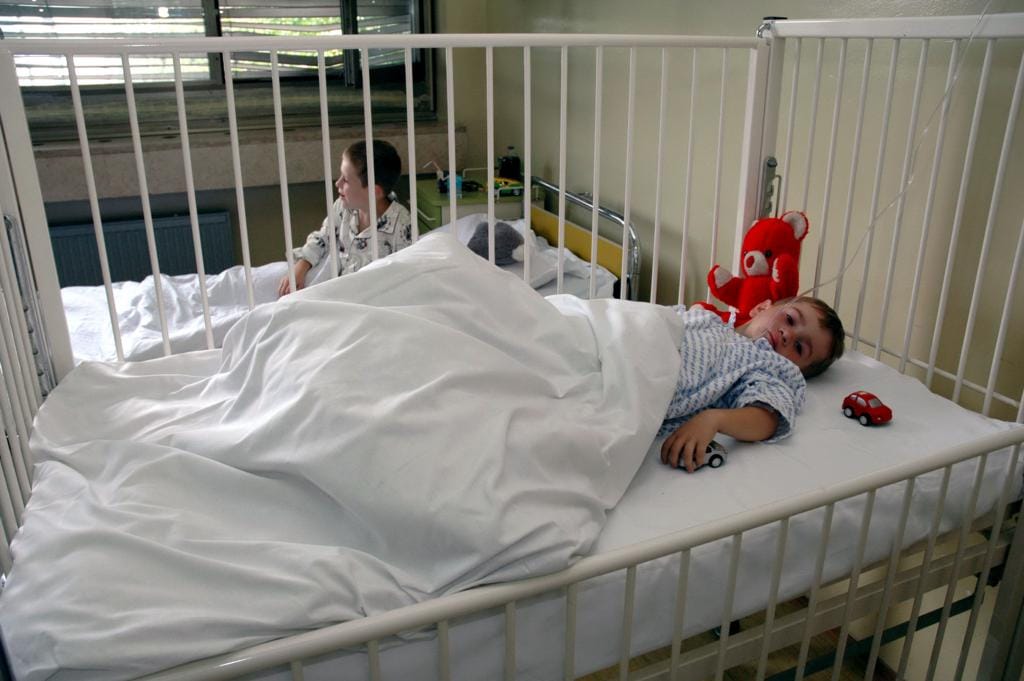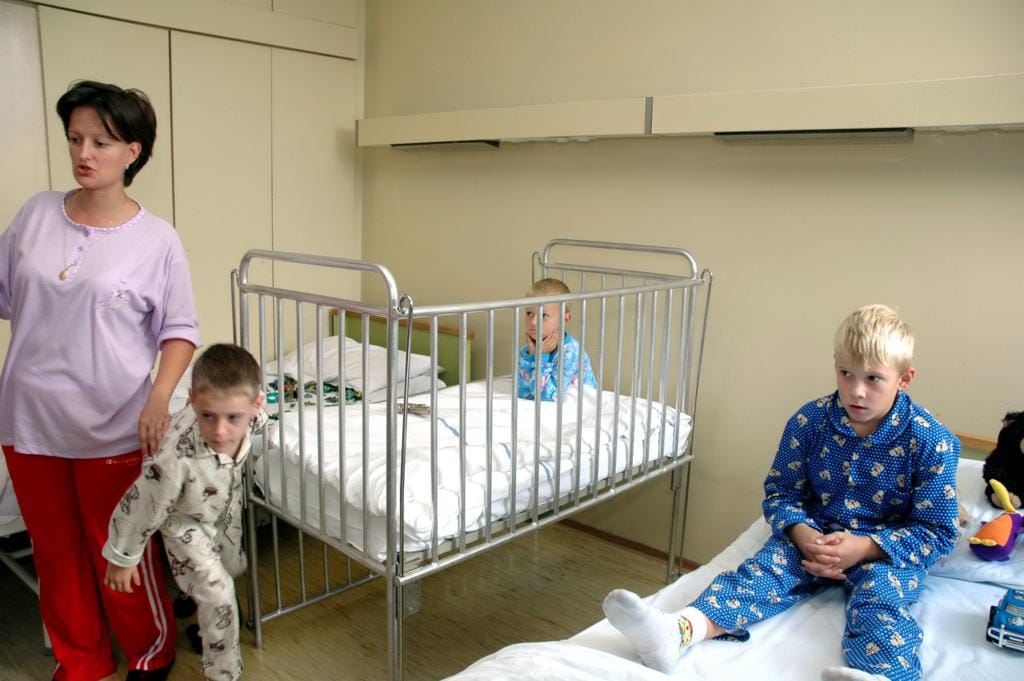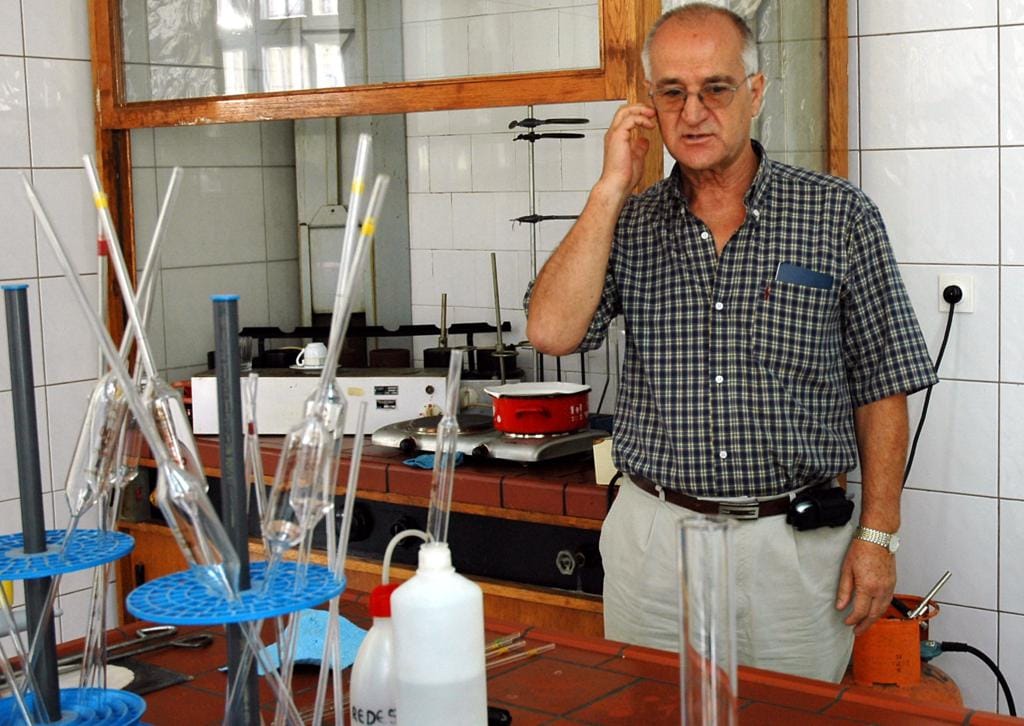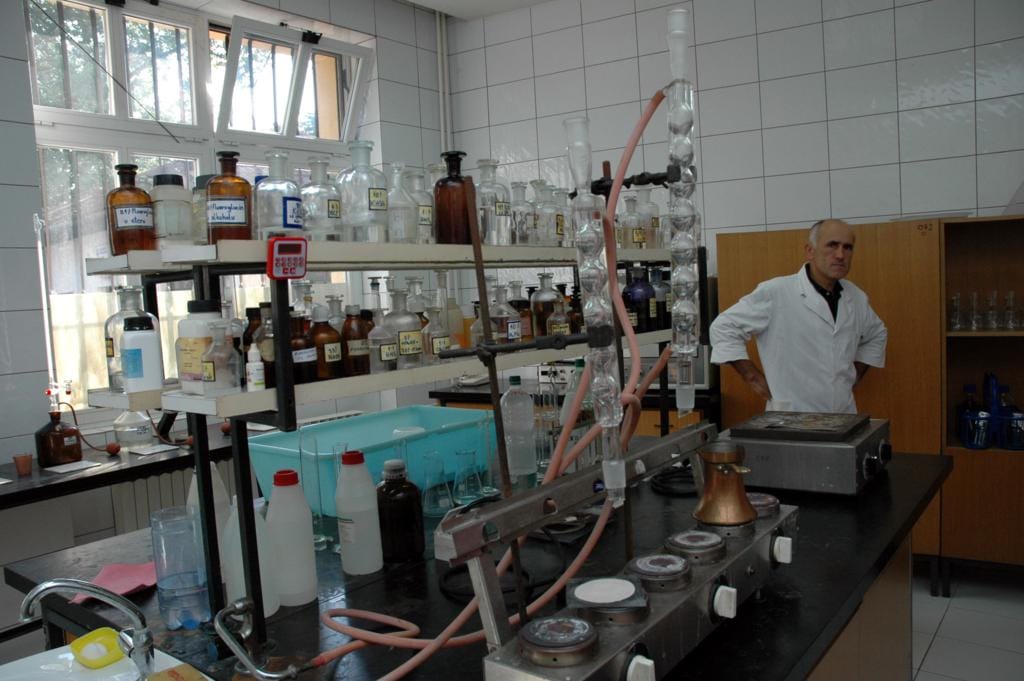One day before the Aličić family of Živinice were to leave on a trip to the seaside, their 6 ½-year-old daughter Alma complained of a headache and vomited. Instead of Orebić they ended up at the Communicable Disease Clinic in Tuzla terrified as doctors treated her for viral meningitis.
She got better, but the Šabić family in Zenica was not so lucky.
In July, about a month after 32-year-old Redžo Šabić began working in the same coal mine as his brother he complained of an overpowering headache and exhaustion and began vomiting. In a month he was dead of leptospirosis, an uncommon disease spread by rats.
These two are among the thousands of citizens in Bosnia and Herzegovina affected by outbreaks of infectious diseases since the beginning of this summer. While no country in the world is free of such illnesses, 64,278 BiH citizens, 58 percent more than last year, have been stricken this year. Doctors say they are seeing outbreaks of illnesses that have not hit the country in years – and even worse may be just ahead.
Scientists worldwide, on watch against the potential of a new form of deadly influenza to sweep the globe, are sending up warnings about the growing number of deaths from bird flu. BiH lies directly under the migratory route of the animals that carry these germs.
Little has been done to educate citizens about how to protect against the disease or to get ready for the appearance of cases or to prevent that.
‘We are unprepared’ said Marko Radoja, a spokesman at the Clinical Center Banja Luka, flatly. ‘You may not give food, you can clear the water, but you can’t do anything with the air.’
An investigation by the Center for Investigative Reporting in Sarajevo (CIN) last fall revealed overreaching structural problems in the 1 billion KM BiH health care system. The ongoing investigation shows that some of those problems, especially bad coordination among doctors and officials, the lack of adequate diagnostic labs and dangerous animal burial procedures are eroding the response to communicable diseases.
The health system, as with all other government systems, was radically altered by the war a decade ago and not for the better.
Coordination between doctors around the country and public health officials was far better in the past, according to Danica Hlača, a retired virologist from the Sarajevo Institute for Virology with 43 years of experience.
‘Before the war, we had daily communications among people in the field, us in the laboratory and people in hospitals…clinicians, and that was a well-working practice. We even used to write research publications together’ she said.
Today, she said, BiH is short of trained health care professionals specializing in virology and in laboratory facilities. The situation could worsen, specialists say, when they begin retiring in a few years. Gone will be their years of acquired knowledge and experience with diseases.
Law made after the war on the handling of communicable disease has left unclear exactly when officials should declare an epidemic. This timing is important because an official ‘state of emergency’ gives authorities the power to undertake potentially life-saving precautions such as disinfection or extermination of pests or condemning water or food supplies. They also may quarantine or isolate cases or spend money for equipment and drugs.
Arif Smajkić, director of the Public Health Institution of BiH and an expert on social medicine and health care, said that the war came just at the point when BiH was making major advances in infectious disease prevention.
In ex-Yugoslavia, he said, health officials used radio and other local-level communication to tell people about the need for hygiene and such techniques as boiling water to limit the spread of disease. Now, even citizens in areas actually hit by disease, like Tuzla, wonder if they are being told everything they need to know to keep safe.
Smajkić said BiH spends less on health care now than in the 1980s. According to Zlatko Vučina, director of the Federation Public Health Institute, the figure is about 335 KM per capita compared to 560. He was not able to say whether more or less of that reduced amount was going toward preventing controllable diseases.
Health officials in both entities report that cases of viral meningitis increased from 59 cases last year to 238 so far this year. While 66 people came down with brucellosis last year, the number is up to 96 this year. All these cases have been in the Federation. Cases of leptispirosis have jumped from 5 a year ago to 47.

Croatia, for example, has not registered a case of brucellosis all this year, while that cattle-born disease has whipped through BiH. Ira Gjenero-Margan, director of the epidemiological department of the Croatian Public Health Institute, said his country has seen no increases in the incidence of any communicable diseases.
But BiH citizens have faced outbreaks of four dangerous communicable diseases.
Leptospirosis, the fever that killed Redžo Šabić and sickened 27 other miners at Stara Jama in Zenica, had not been appeared in BiH in decades.
Salih Tandir, director of Public Health Institute of Zenica Doboj Canton, has blamed this on the failure of mine owners to control rats properly. While rodents spread disease, they also serve the benefit of signaling the presence of lethal methane gas in mines.
‘Miners lived with rats’ he said. ‘Some of them were almost breaking bread with rats.’
Šabić, according to his brother, Selvet, also a miner, did not see a doctor when he began to feel ill because he was afraid of being fired. ‘On the last day, he came home crawling’ the brother said. .
Brucellosis has also spread throughout BiH since the war and may now be difficult to stamp out without radical measures, according to Sajma Krkić-Dautović infectologist at Sarajevo clinical center
The disease primarily infects animals, but can spread to humans who then lose weight, and suffer stomach pain, depression and emotional instability.
Krkić-Dautović said that between 2000 and today, the number of infected humans has steadily risen. Some 82 were affected this year by the end of August, compared to 53 cases in all of 2004.
Jasmin Ferizbegović, president of the Veterinary Association of BiH, said the disease is now spreading out in wider areas away from rural epicenters in Herzegovina Neretva Canton and Middle Bosnia Canton.
This veterinarian from Tuzla worries that thrihophitia, an animal skin infection transmittable to humans and difficult to eradicate has also appeared in recent months. He blames this on the illegal importation of animals that then infect local cattle
Thrihophitia is easily passed in dormitories, kindergartens and schools and can be a serious risk to children. In its worst forms, it leave permanent scars and baldness.
‘We’re seeing a revival in the outbreaks of contagious diseases such is thrihophitia’ said Smajkić. ‘This disease was current in BiH in the 1960s, but doctors and schools dealt with it vigorously at the time.’
Incidences of viral meningitis escalated in Banja Luka last June and then moved into northeastern BiH. By the time officials declared an end to the epidemic in the RS capital on the last day of June, 70 children were sick. More kids continued to arrive in the Clinical Center of Banja Luka.

An epidemic was declared as well in the Tuzla Canton in mid-September after 97 children there were infected.
Viral meningitis which brings fever, joint aches and loss of appetite, can be spread by poor hygiene, particularly when children do not wash their hands after going to the bathroom and then play with classmates.
Located in Živinice, the Second Elementary School is one of the most crowded in the canton of Tuzla. About 1,350 children, double the number the building was made for, use one bathroom. Alma Aličić, the recently recovered meningitis patient, is a first-grader there.

‘That directly affects health conditions of children’ said Hasan Selimović, the school director. ‘Imagine one toilet on 1,350 students, each one of them could go through it 10 times a day. You know what kids are like.… That is the source of disease.’
Miralem Aličić said putting his daughter in the hospital turned his world upside down. ‘You know what is said, she was a child of joy, being born after the war.’
Thousands of other loving parents like Aličić may well worry about the health of children who attend classes around BiH in old or run-down buildings, some without running water.
Nine years after the Cantonal Ministry of Health received a detailed report on reconstructing and renovating neglected schools from the Public Health Agency of Tuzla, nothing has been done there.
Some places ignore even measures far short of building anew.
Danica Stjepanović, a janitor in the Ljubače elementary school near Živinice said she is allotted just five bottles of cleaning liquid and a bit of dish detergent to last more than a month. Here, and at other schools. Teachers and parents chip in with additional supplies, rubber gloves and paint to keep germs at bay.
State officials do not even agree about when epidemics should be declared.
Federation Law on protecting citizens from infectious diseases defines an epidemic as an unusual increase in the number of cases. RS law is similar.
That leaves room for disagreement and delay. More than 100 children in northeast BiH came down with the headaches and vomiting of viral meningitis over two months before officials declared an epidemic of the disease in the canton of Tuzla.

Some doctors believe the numbers don’t mean anything and that there is no epidemic unless the sick people are connected in some way. Cases that can be linked or traced to a single source of infection indicate an epidemic, they say.
In Tuzla, for example, Sead Ahmetagić, the head of the Clinics for Infectious Diseases in Tuzla, looks at the number of cases this year and last and calls 2005 an epidemic. But Zijad Bešlagić, the director of Tuzla Canton Public Health Institute saw no connection among the cases and no need to declare an epidemic earlier than it was.
When a declared epidemic should end is another problem.
Dr. Srboljub Golubović, chief epidemiologist of the Clinical Center of Banja Luka believes the meningitis epidemic was declared ended too soon. Patients from other RS locales kept coming into his contagious diseases ward after the official end date of July 29.
‘We have cases in Gradiška, Laktaši and they are in no connection with Banja Luka municipality’ he said, ‘but when a neighbor’s house is on fire, I have a fire in my yard.’

A brucellosis epidemic also should have been declared a while ago, said Ferizbegović of the Veterinary Association. He believes it was not declared because authorities were either not doing their job or didn’t want to admit the situation was so bad.
Armina Lazarević, an epidemiologist from Konjic, sees no gain in declaring a brucellosis epidemic. ‘On one side’ she said, ‘We have no money for cattle extermination and farmers compensation, and on the other side we will create panic and ruin our tourism and cattle breeding.’
Asmira Bilalić from Lukavac has a parent’s view. Her 4-year-old son Almedin was diagnosed with meningitis in September. She did not know that other children were also getting sick and she still does not know how he contacted the disease. She wants more information from officials.
At a time when infectious diseases are on the rise, officials told CIN they did not know how much was being spent on preventing and eliminating them.
Chief FBiH epidemiologist, Zlatko Puvačić, said he doesn’t know what the budget is for the Sector for Epidemiology for the Federation Public Health Institution.
‘Sector for epidemiology receives no dedicated amounts of money’ he said. ‘How much did we spend this year? I don’t know, and how much we have I don’t know either.’
Tomo Lučić, who recently resigned as FBiH Health Minister, said he did not know the budget figure. ‘You should ask director Zlatko Vučina that question’ he suggested, but Vučina referred questions to Puvačić.
In the RS, the office of Ivo Komljenović, the minister of health and social protection, instructed CIN to talk to Mitar Tešanović, an epidemiologist from the Health Protection Institute. Asked about the budget Tešanović said he didn’t know.
Officials, nonetheless, cite lack of money – and lack of foreign aid to fill in – as the reason BiH is the sole country in Europe without a virology laboratory. Such a facility can make quick and accurate diagnosis of disease and its sources possible.
Dr. Nermina Mehinović, assistant to the minister of health in Tuzla canton, said that it can take days or weeks to get confirmation of what is causing illnesses. Specimens are sent to labs in Italy, Croatia or Serbia and Montenegro. Doctors instead rely simply on what they see and treat on the basis of symptoms.
Sending specimens to foreign labs is a needless expense, say medical experts.
‘We’re either thinking niggardly or we think that we’re gaining in the short-term’ says a microbiologist and parasitologist from the Medicine Faculty of the University of Sarajevo, Šukrija Zvizdić. He said results frequently come in too late to do much good.
The same issue is worrying RS medical experts. Dr. Radovan Bratić, epidemiologist at Public Health Institution of RS said: ‘We can’t establish a type of simple flu, but we have to send samples to Zagreb or Belgrade, while we declare an epidemic based upon’ impressions from doctors.
Munira Miheljčić, director of the Public Health Institution of Una Sana Canton, said she officials likely would not consent to pay the price medical equipment needed now until there is a deadly epidemic.

The Head of the Communicable Disease Department at The Veterinary Faculty at the University of Sarajevo, Tarik Bajrović, agreed that initiative rather than money is the real issue. Officials could even do some laboratory analysis at the very faculty he works at, if the effort were made.
‘In order to determine the causes of leptospirosis, one needs nothing but a microscope with dark field and a thermostat’ said Bajrović, listing basic laboratory equipment. Doctors around the country simply are uninformed that the lab is available, he said. They have no mechanism to communicate with each other.
Dr. Atif Arnautović, a retired epidemiologist hired by a general hospital in Vrazova to assist young doctors part time, said he found it absurd ‘that I receive weekly reports from Geneva and America about the epidemiological situations in these countries, while I don’t know what goes on in Kiseljak or Banja Luka.’
Dr. Golubović of Banja Luka learned about the meningitis outbreak in Tuzla canton from CIN reporters. ‘It’s terrible that there is no centralized clearinghouse that would gather and periodically disseminate information on situation with infectious diseases to all epidemiologists.’
Vučina, of the Federation Health Institution, gave an example of how badly regional centers exchange information about conditions in the field. He left the office on Sept. 19, for vacation, knowing nothing from the Tuzla canton Public Health Institution on the number of children infected with meningitis – even though an epidemic was declared the following day.
Vučina is not the only one out of the loop. When CIN reporters asked Bešlagić of the Public Health Institute of Tuzla Canton, about how many people have been infected in his area, he said he couldn’t give exact figures.
Rules on hospitals and doctors reporting to the institute are lax, Vučina said, and doctors don’t do Dr. Sajma Krkić-Dautović, the infectologist from the Clinical Center in Sarajevo, blamed the poor reporting on the lack of any state-level epidemiological office. Lower level health departments all act independently of each other.
Communication doesn’t seem to happen even among agencies working within the same government.

Nada Rajković, assistant to the minister of agriculture, water and forests of FBiH, said that she didn’t know about an increased number of brucellosis cases. She said that Ministry of Health of FBiH provided her department with no warning, a claim Vučina and others confirmed.
The spread of animal-born disease across rural BiH may be partly a result of agriculture and health officials not working together.
In 2000 Wolfgang Petritsch, then the High Representative, fired the FBiH minister of agriculture over the issue of import of infected livestock that helped spread Q fever, similar to brucellosis, to people.
Five years later, Smajkić said things have gotten worse. BiH, he said, needs a system to monitor animal health, quarantine sick animals and to safely dispose of them.
Nihad Fejzić, deputy director of BiH veterinary office, said illegal importation of cattle over the Drina River from Serbia and Montenegro is known. Still, it is almost impossible to get everyone involved at the state and entities level in sync on animal regulation.
‘We at the veterinary office should have magician capacities like David Copperfield to coordinate it all’ he said.
Nada Rajković, assistant to Marinko Božić, FBiH agriculture minister, agreed that control of animal health was missing – and crucial.
‘What we do is on a local level, spending huge amounts of money for extermination of cattle and paying compensation money. We are bearing the consequences of such conduct and chaos in system, we are paying for the costs livestock extermination’ she said.
BiH citizens could be better protected against disease with the adoption of some simple fixes, experts said.
A state-level Ministry of Health clearly in charge of public health measures would be the solution of choice for Vučina of the public health institution ‘I’m not supporting the idea to have everything on the state level, but some things must be’ he said

Medical academic Grujica Žarković said people are suffering from diseases no one should suffer from. He would establish a public health agency with an epidemiology department and another department to help improve hospitals and health care.
Smajkić of the BiH Public Health Institution said unifying all existing medical agencies would be a good first step and a way to keep everyone involved in public health aware of impeding dangers
Along with a state health ministry, BiH must have a state-level agriculture ministry, Ferizbegović said. The European Union has also suggested that.
Sretko Hadžiabdić, chief sanitary inspector in Zenica municipality, warns that the time to act is now.
‘The eleventh hour is long over’ he said. And many scientists, foreseeing the possibility of 100 million deaths around the world from bird flu if no action is taken soon, could not agree more.
‘Unless the state decides to financially support a human and animal health care system, we’ll end up in situation where we’ll have certain city areas isolated, with disease outbreaks randomly occurring.’ Hadžiabdić said.
Dr. Golubović of Banja Luka summed up the importance of decisive action soon this way: ‘Ask for whom the bell tolls. It tolls for everybody.’







